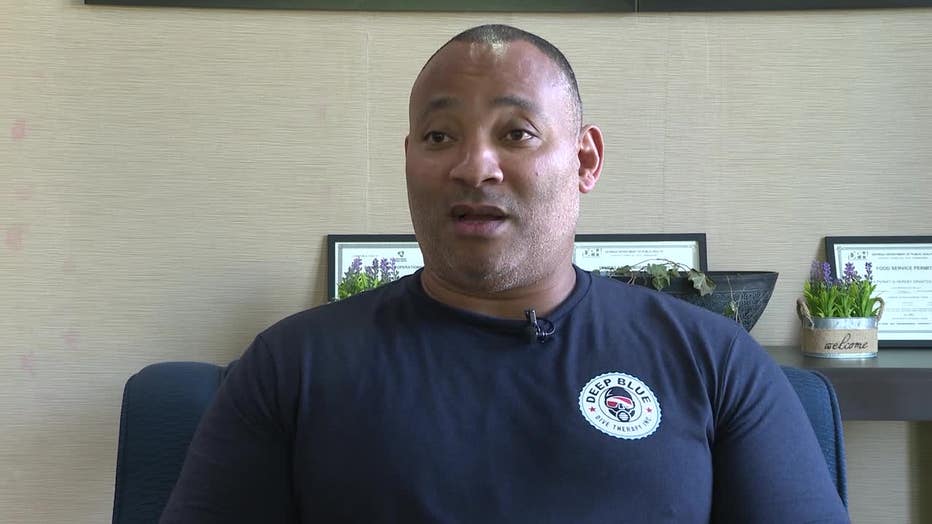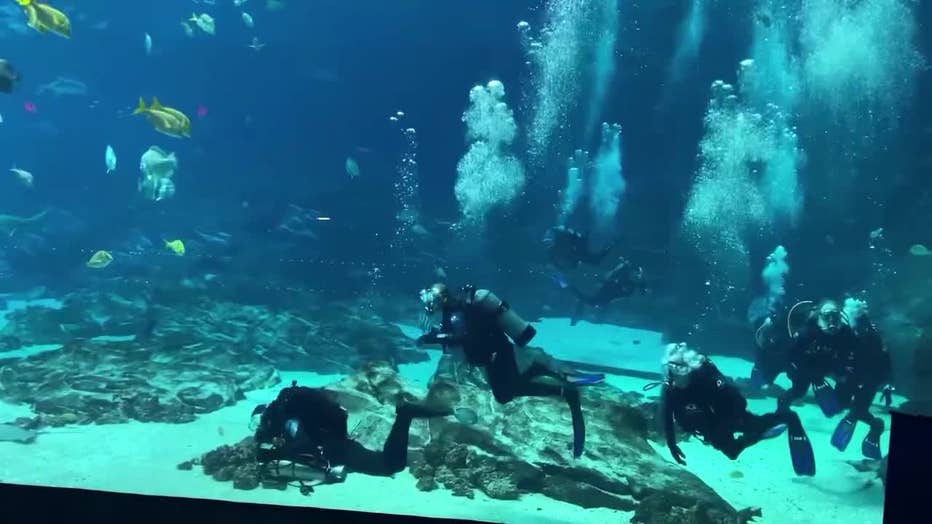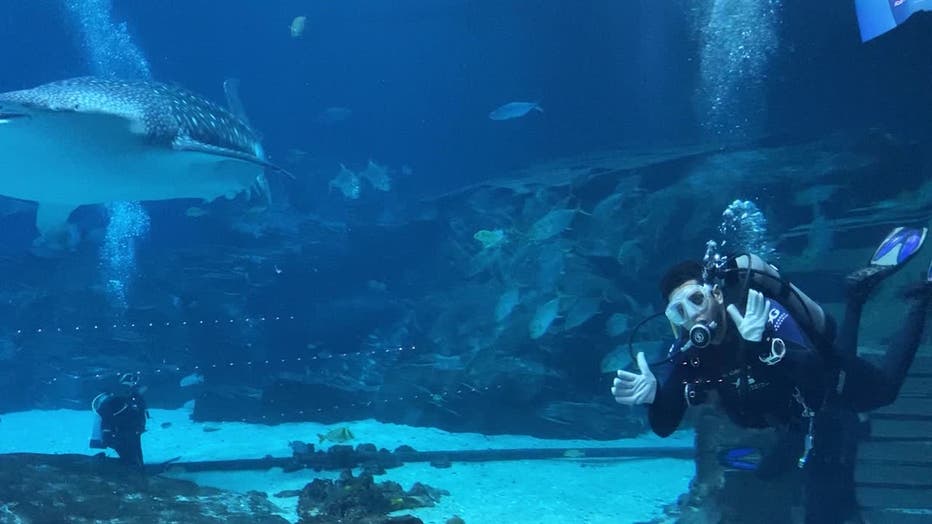Veterans find PTSD relief through scuba diving program

Veterans find peace through scuba diving
When the former marine and Georgia police officer scuba dives, everything slows down and fits into place. He now is trying to bring that same sense of peace to his fellow veterans.
ATLANTA - Eight veterans had an experience of a lifetime at the Georgia Aquarium - getting up close and personal with some of the wildlife during a dive in the whale shark tank.
The dive was part of a program called Deep Blue Dive Therapy. It's a nonprofit to help veterans across the country suffering from PTSD, and it was founded by a former Cobb County police officer.
Whether it's in the ocean, the sea, or even a giant tank Larry Wilson says there's a sense of peace when he takes a dive.
'I think when you're watching the fish and all of the wildlife you definitely get outside of your own head. And I think that's the important part about it," Wilson said.
That feeling has been helping him cope with Post Traumatic Stress Disorder. Wilson served with the Marines for eight years, and then became a police officer, ending his law enforcement career in Cobb County.
"I've got PTSD myself and I also scuba dive," he said. "I knew after scuba diving that I felt really good, getting exposed to nature, being in the water."

Larry Wilson
He wanted to bring that same feeling to others dealing with the same struggles. So he founded Deep Blue Dive Therapy alongside David Fritz. The two served together in Iraq.
"It slows everything down, gets your heart rate low, just getting those deep slow breaths, just slows everything down, You're not thinking, you're just doing. It's a different thing, it's almost like being back overseas," Fritz said.
Their organization offers a different kind of outlet for others all over the country.
"So we partner them with a local dive shop in their zip code, pay for their dive certification in basic open water, and then invite them on a dive excursion," Wilson explained.
This excursion is at the Georgia Aquarium. It's Michael Brown's first one. He's a marine veteran living in Woodstock. He was referred to Deep Blue Dive Therapy by the Wounded Warrior Project.

'I was just a regular old infantry marine, I didn't get to do anything special, no jumping, no diving, I was always just walking around on the ground. So learning how to dive underwater was something new, and it was a good tool to learn," he told Good Day's Lindsay Tuman.
He says learning to dive has been a big help for his mental health.
"It's almost in a way therapy in and of itself without someone talking to you," Brown said.

And that's the goal of the program, connecting these veterans and first responders across the country with deep breaths and deep dives.
"As many veterans and first responders as we can help. There's really no limit we just do what we can do," Fritz said.
If you want to learn more about Deep Blue Dive Therapy or how to help their cause you can visit their website.

